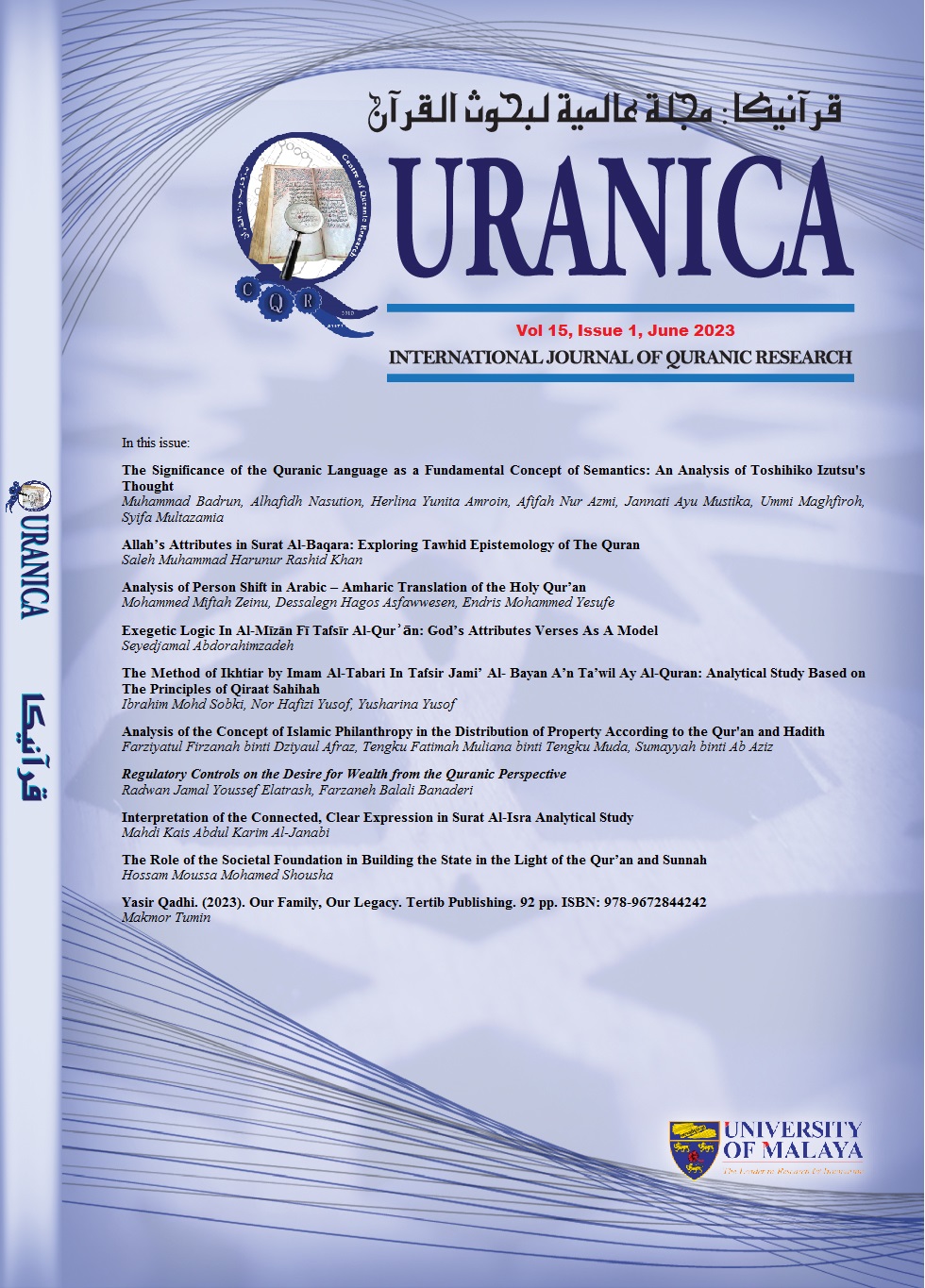Exegetic Logic In Al-Mīzān Fī Tafsīr Al-Qurʾān: God’s Attributes Verses As A Model
Main Article Content
Abstract
Given the classic, exegetic principle that parts of the Qurʾān interpret others and the dynamic role credited to exegetes’ rationality in contemporary exegesis, this study has aimed at analyzing the nature of exegete-text interaction in light of the Qurʾān intratextuality. To this end and through descriptive-analytic research, the commentary of a number of verses on God’s attributes in Al-Mīzān fī Tafsīr al-Qur’ān (The criterion in the interpretation of the Qurʾān) was subjected to description and scrutiny; the exegesis is well acknowledged for taking the Qurʾān as the source of reference in light of the principle. The study begins with a short account of how the Qurʾān appreciates reason and wisdom development in general and while approaching its content, in particular. Then it proceeds to introduce Al-Mīzān, its author’s exegetic viewpoints and the mechanism of his method. The author’s comments on sample verses are then presented along with an analysis of the course of his interaction with the text in those comments. The findings show that both immediate contextual clues indicating semantic interrelationships and clues in germane, remote verses on account of intratextuality in the Qurʾān have been employed by the author to present context-supported meaning and implications through reason application. The outcomes along with those from similar works tackling the process of exegete-text interaction in line with the exegetic principle in focus are expected to enrich our knowledge of Qurʾānic hermeneutics.
Downloads
Article Details
Disclaimer
QURANICA makes every effort to ensure the accuracy of all its contents. However, opinions, discussions, views and recommendations are expressed in this journal do not necessarily reflect the official policy of QURANICA or views of its editors or publishers. Therefore, QURANICA and its publishers will not be liable for any controversy may be arisen. The journal reserves the right, at its sole discretion, to change its terms and conditions of publications.
Copyright
It is a condition of publication that manuscript submitted to the journal have not been published, accepted for publication, nor simultaneously submitted for publication elsewhere. By submitting a manuscript, the author(s) agrees that copyright for the article is transferred to the publisher, if and when the manuscript is accepted for publication.
